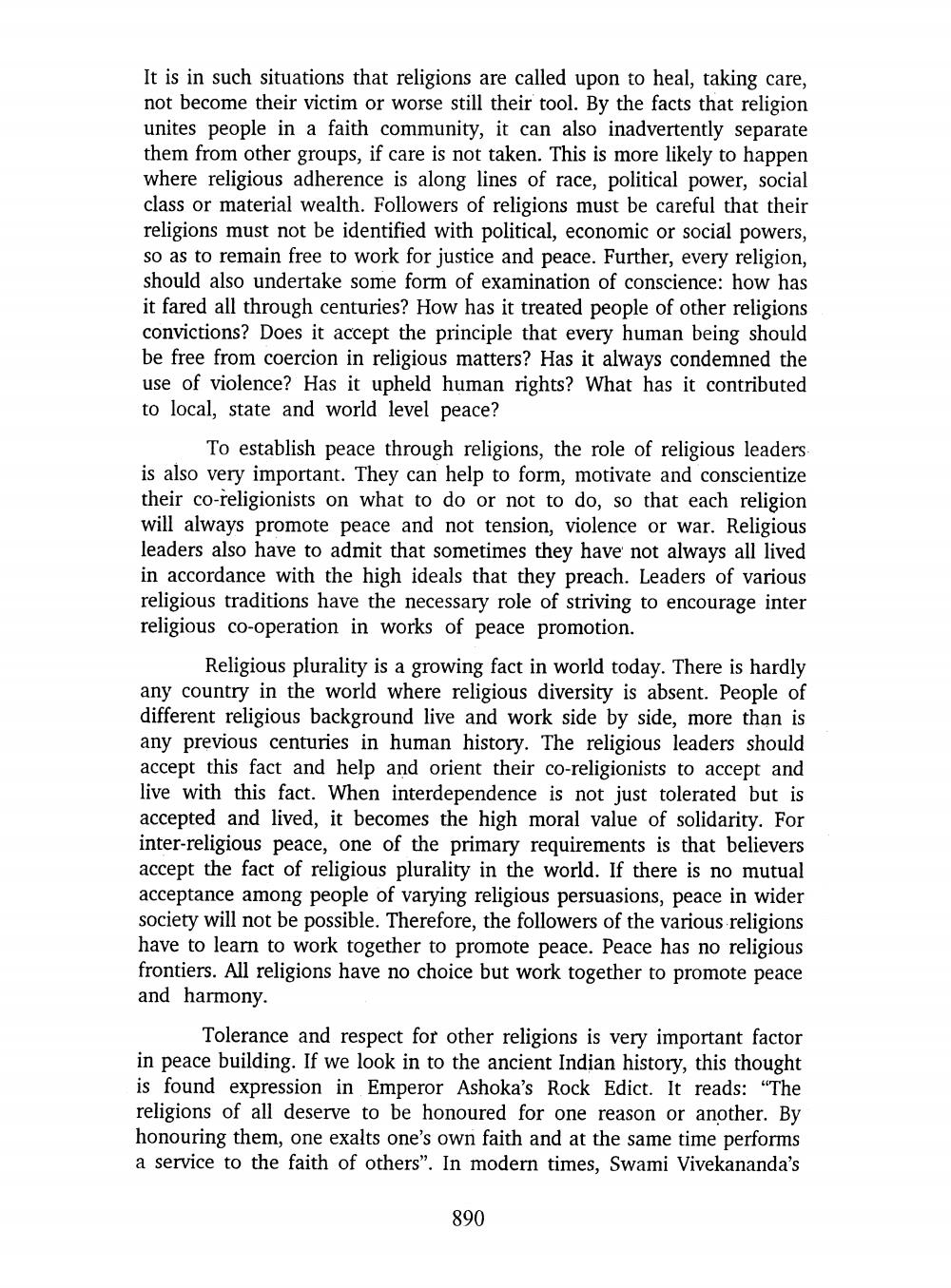________________
It is in such situations that religions are called upon to heal, taking care, not become their victim or worse still their tool. By the facts that religion unites people in a faith community, it can also inadvertently separate them from other groups, if care is not taken. This is more likely to happen where religious adherence is along lines of race, political power, social class or material wealth. Followers of religions must be careful that their religions must not be identified with political, economic or social powers, so as to remain free to work for justice and peace. Further, every religion, should also undertake some form of examination of conscience: how has it fared all through centuries? How has it treated people of other religions convictions? Does it accept the principle that every human being should be free from coercion in religious matters? Has it always condemned the use of violence? Has it upheld human rights? What has it contributed to local, state and world level peace?
To establish peace through religions, the role of religious leaders is also very important. They can help to form, motivate and conscientize their co-religionists on what to do or not to do, so that each religion will always promote peace and not tension, violence or war. Religious leaders also have to admit that sometimes they have not always all lived in accordance with the high ideals that they preach. Leaders of various religious traditions have the necessary role of striving to encourage inter religious co-operation in works of peace promotion.
Religious plurality is a growing fact in world today. There is hardly any country in the world where religious diversity is absent. People of different religious background live and work side by side, more than is any previous centuries in human history. The religious leaders should accept this fact and help and orient their co-religionists to accept and live with this fact. When interdependence is not just tolerated but is accepted and lived, it becomes the high moral value of solidarity. For inter-religious peace, one of the primary requirements is that believers accept the fact of religious plurality in the world. If there is no mutual acceptance among people of varying religious persuasions, peace in wider society will not be possible. Therefore, the followers of the various religions have to learn to work together to promote peace. Peace has no religious frontiers. All religions have no choice but work together to promote peace and harmony.
Tolerance and respect for other religions is very important factor in peace building. If we look in to the ancient Indian history, this thought is found expression in Emperor Ashoka's Rock Edict. It reads: "The religions of all deserve to be honoured for one reason or another. By honouring them, one exalts one's own faith and at the same time performs a service to the faith of others”. In modern times, Swami Vivekananda's
890




